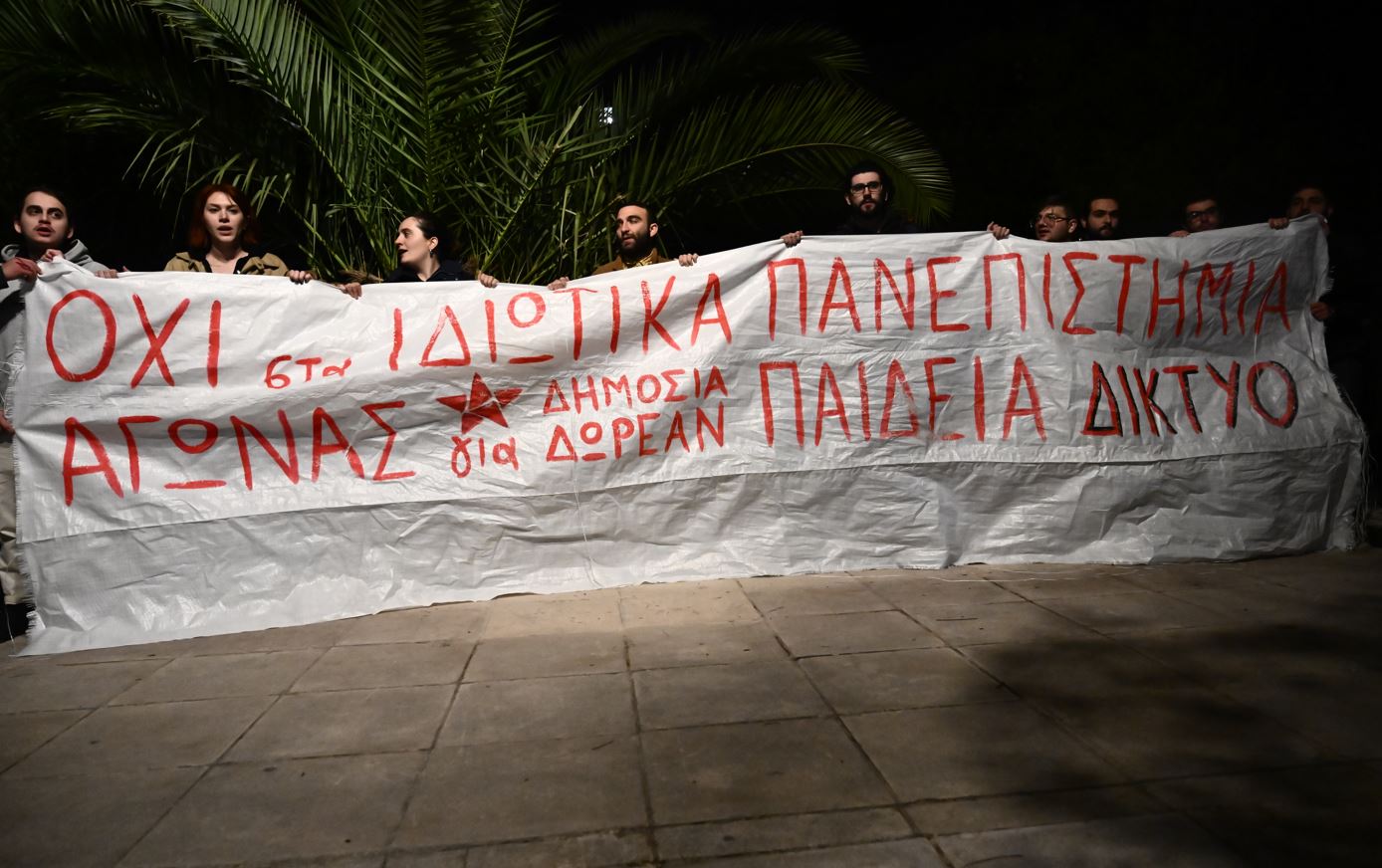General News
Meropi Kyriacou Honored as TNH Educator of the Year
NEW YORK – Meropi Kyriacou, the new Principal of The Cathedral School in Manhattan, was honored as The National Herald’s Educator of the Year.

The Greek Government is in the process of passing pass long-awaited legislation regarding the operation of private not-for-profit universities. This legislation would open the door for non-state universities to establish themselves institutionally in Greece and essentially enjoy the same status as existing state-run institutions. Similar initiatives were previously unsuccessful because they stumbled upon constitutional constraints expressly stating that higher education should be public. Even now, the Government’s proposed law aims legalize foreign private universities operating in Greece (but not Greek private universities) through remedies provided by EU regulations instead of Greek law, due to the likely inability to secure the necessary two-thirds parliamentary majority required to amend the Constitution.
Hence, it’s not clear whether the Government’s present approach is correct. From a legal standpoint, the red tape involved could scare off quality universities and limit the international endorsement and investment needed to ensure the success of this undertaking. Moreover, tiptoeing around the concept of constitutionality poses the eventual danger of a European court having the final say, in what could set a precedent for future interventionism from Brussels.
On the other hand, Greece’s decades-long delay in adjusting to the current academic landscape has proven costly. As other EU member states embraced private universities, Greece missed out on opportunities to become an international education hub attracting world renowned researchers and scholars. This influx of human capital and accompanying investments would undoubtedly have a wider impact, boosting the economy, research and development, and of course, the nation’s diplomatic imprint through a bolstering of its ‘soft power’. Additionally, it would provide respite to many Greek students, who could avoid the expenses and inconvenience of having to study abroad by taking advantage of the increased opportunities provided by local private universities.
Perhaps the Government’s hope is that following passage via simple majority, the imperfections of the existing draft legislation will ultimately be improved once the opposition parties eventually acquiesce and agree to constitutional reform. Such a scenario occurred last summer with the facilitation of the voting process for Greek citizens living abroad, when opposition parties finally agreed to simplify the process and drop the irrational requirements initially imposed some years earlier. Of course, in the case of universities, any red tape and irrationality projected by the Greek state will be directed to and assessed by an international audience, which will likely not be as forgiving or patient as Greek citizens, due to the absence of any emotional ties. Therefore, we must hope that the allure and natural advantages of conducting higher education in Greece, with all the cultural capital, history, and marketing opportunities that it offers, will be enough to convince quality institutions to wait it out and overcome any initial hiccups involved in the process.
In spite of its missteps, with the passage of this legislation, the current Government will have successfully achieved two major milestones, symbolically coinciding with the semi-centennial of the restoration of democracy in Greece – the securing voting rights for Greeks abroad and the enabling of the full-fledged operation of private universities in Greece. These are two monumental reforms that have the potential to positively impact the Greek nation and society on the whole for decades to come.
Lastly, ahead of the inevitable corrections and improvements (namely, constitutional reform) that will need to follow to make the current legislation more functional and friendly, it’s worth noting that the protectionism offered to public higher education through the current constitutional provisions has not achieved the goals initially intended by its framers. For example, while no doubt intending to shield students from the backbreaking cost of tuition that would create glaring inequalities based on class, the resulting monopoly produced by restricting private universities also led to the current state of para-education that forces most every Greek family to pay for private tutoring lessons to ensure that their children have a chance of being admitted into universities. Furthermore, the system of national testing that promotes rote memorization of the subject matter offers little to no benefit to students and has been widely criticized by most educators. Not to mention, students fortunate enough to be admitted into the university of their choice must then contend with self-serving vested interests – including vocal and often violent partisan student cliques that exert disproportionate influence in the administration process. The results are evident to the bare eye – routine destruction of campuses and university property, frequent disruption of instruction due to protests and takeovers, systematic intimidation of faculty and students, stifling freedom of expression and free exchange of ideas, etc. The operation of private universities and the accompanying pressure to compete might very well help unfetter public universities from the misinterpretation or poor enforcement of the very laws originally designed to protect them, but eventually misused to inhibit their development.
Follow me on X @CTripoulas
NEW YORK – Meropi Kyriacou, the new Principal of The Cathedral School in Manhattan, was honored as The National Herald’s Educator of the Year.

MELBOURNE, Australia (AP) — More than 100 long-finned pilot whales that beached on the western Australian coast Thursday have returned to sea, while 29 died on the shore, officials said.
"How did you find Greece?" a friend asked me, after my recent return to New York from a trip there.
On Monday, April 22, 2024, history was being written in a Manhattan courtroom.
PARIS - With heavy security set for the 2024 Paris Olympic Games during a time of terrorism, France has asked to use a Greek air defense system as well although talks are said to have been going on for months.
PARIS (AP) — Paris has a new king of the crusty baguette.